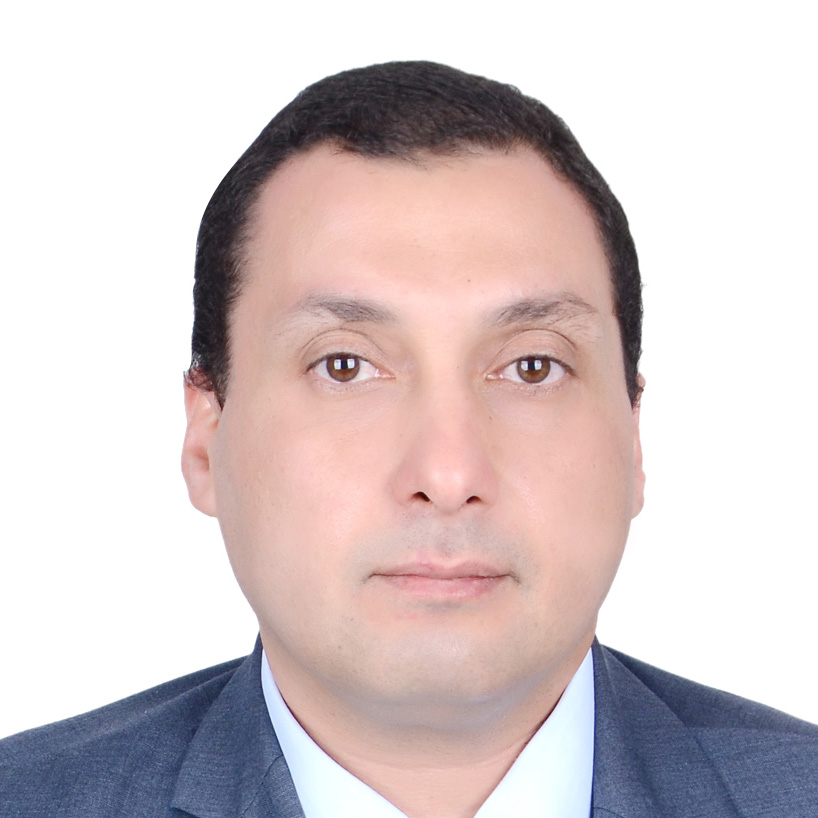Why Study an Applied Health Economics Master's with Learna
We have over 10 years’ experience delivering online courses, giving you access to flexible, affordable distance learning in partnership with world-leading educators.

100% Flexible
Our courses are 100% online. No fixed study times mean you can log in and learn whenever and wherever.
Multidisciplinary - study in a group of doctors, nurses, pharmacists and other healthcare professionals.

Expert Led
All of our programmes are authored and developed by world leading experts in their field.
Our faculty are selected due to their subject expertise, experience and teaching abilities to ensure the highest standards of educational excellence.

Career Boosting
Get a University Validated postgraduate qualification in just 1 calendar year instead of 2 academic years.
40% of our alumni reported an increase in salary 2 years after studying with us.
Who is this course for?
Our affordable online master's in health economics has been developed for:
- NHS Managers
- Doctors
- Nurses
- Allied Health Professionals
- CCG commissioning teams
- CCG Pharmacy teams
- Pharmaceutical Industry Professionals
- other suitably qualified and interested individuals.
How Will I Learn?
You'll learn through our flexible, interactive online platform, which allows you to engage with clinical cases, complete assignments, and collaborate with fellow students at times that suit your schedule. There's no fixed timetable—simply log in daily to participate in the week's activities.
Learn through engaging discussion
Our teaching approach is highly interactive, using small groups of 10-20 students to foster a collaborative environment where you can engage in thoughtful discussions and receive guidance from your tutor. You'll have access to learning resources and discussion forums that encourage ongoing interaction and deeper engagement with the material.
Throughout your studies, you'll receive support from a dedicated expert tutor and our Student Support Team, ensuring you have the resources needed to navigate the course successfully.
Curriculum
The MSc health economics is a two year course, consisting of eight modules (180 credits) with the first 120 credits deriving from the Postgraduate Diploma. The second year of the online masters in health economics course starts with an initial 10 week online module that will develop skills in critical appraisal and knowledge of research methodologies. Students then complete the professional project module, which consists of a 1,500 word proposal and 10,500 word professional project (dissertation).Year 1
Module Aims
- To understand and evaluate the purpose, principles and processes of health economics in healthcare decision making & HTA.
- To understand and critically evaluate the strengths and limitations of health economics in healthcare decision making & HTA in regard to meeting their aims/achieving their purpose.
- To understand the relevance of Health Economic decision making to clinical practice.
Module Content
- Principles of Health Economics
- The role and function of health technology assessment (HTA)
- Common misconceptions of Health Economics & HTA
- Health Economics & HTA as part of Evidence Based Medicine/ Practice (from National, to Sub-National, to Personal Practice)
- The relevance of Health Economics to healthcare professionals
- The effect of budget on decision making
Learning Outcomes
- Demonstrate the ability to critically evaluate processes used in health economic decision making.
- Demonstrate a working knowledge of health economics used in health technology appraisals.
Module Aims
Develop a critical understanding of the way in which benefits or clinical value are calculated and judged within health economic decision making.
Module Content
- Identifying clinical benefit: Critical Appraisal and Systematic Literature Review
- Length vs. Quality of life (QoL): the Quality Adjusted Life Year (QALY)
- Challenges with length of life estimations: time horizons, extrapolation, bias towards the younger patient, the need for future discounting
- Avoidance of negative events
- Critical appraisal of clinical data: Evidence Based Medicine and HTA/Health
- Economic Decision Making
- Critical appraisal of real world data
Learning Outcomes
- Demonstrate the ability to critically appraise the strengths and limitations of the Quality Adjusted Life Year as a measure of clinical benefit.
- Demonstrate the ability to apply principles of Evidence Based Medicine to assess the quality of clinical evidence used to support patient benefit within HTA/ health economic decision making.
Module Aims
To develop a critical understanding of the economic burden of chronic diseases, types of economic analyses, establishing pay thresholds and budget impact.
Module Content
- Investigating and establishing the economic burden of disease
- Types of analysis: Cost-effectiveness, Cost-utility and Cost-minimisation
- Exploration and analysis of cost perspectives
- Willingness to pay thresholds
- Establishing budget impact
- Challenges: rare diseases, end of life considerations, unlicensed comparators, affordability and work flow change
Learning Outcomes
- Critically appraise to budgetary burden of chronic disease.
- Critically appraise the implementation of health economic analysis and budgetary impact in real life/complex clinical situations.
Module Aims
Develop a critical understanding of data interpretation including levels of evidence and statistical interpretation of data.
Module Content
- Additional Data Sources: Real World Data, Expert Opinion, The Patient’s Voice
- Statistics: Confidence intervals and p-values
- Statistics: Hazard ratios and NNT
- Statistics: Bayesian statistics and Cox model
- Statistics: Sensitivity Analysis and Marginal Analysis
- Statistics: Indirect Comparison and Meta-Analysis
Learning Outcomes
- Show an ability to critically evaluate the validity of published data.
- Critically appraise statistical interpretation of scientific data related to health economics.
Module Aims
To develop a critical understanding of the international health economic decision making processes within legal frameworks together with the procurement and tendering processes associated with treatments.
Module Content
- Examine the international Health Economic decision making process
- Legislations vs. Recommendations
- Stakeholders and Payers
- HTA vs. non HTA processes: Procurement, Tendering, and Commissioning
- Evolving Health System policy as it relates to Health Economic decision making
- Maximising patient benefit in healthcare decision making
Learning Outcomes
- Critically evaluate, understand and contrast the current models of healthcare decision making.
- Critically appraise the legal basis of economic decision making.
Module Aims
To appreciate and evaluate the process of implementation of Health Technology Appraisals at the regional and local levels. Appreciate and understand the makeup and evaluation of the stakeholder group at regional/local level.
Module Content
- Applying national decisions/guidelines at a subnational level
- Data required to make decisions at a Sub-National level
- Stakeholders/decision makers at a Sub-National level
- Challenges of implementation at national level to meet Sub-National budget constraints
- Implementation of HE analysis at sub national level with real world data
- Budgetary analyses at subnational level with real world data
Learning Outcomes
- Critically appraise the implementation of HTA advice at the regional and local level, evaluating the challenges of local implementation of national decisions.
- Critically evaluate stakeholder contributions to decision making at regional/local level.
Year 2
Aims of the module:
To prepare students for an independent research-based project by developing skills in selecting, appraising, discriminating, using evidence and appropriate research/investigative methods to address relevant topics for investigation.
Module Content:
Quantitative Studies
Statistical Analysis Interpretation
Interpreting the Evidence
Meta-analysis and Systematic Reviews
Qualitative Studies
Evidence Appraisal: Interpreting, Weighing and Synthesising the Evidence
Audit, Governance and Quality Improvement, Health Economics
Preparing a Research Proposal: Research Committees, Consent, Ethics, Probity and Literature Review
Learning outcomes:
- Critically analyse and interpret research to assess its application to delivery/service development.
- Evaluate and synthesise diverse methodological approaches and research tools to formulate and investigate complex questions within your field of practice.
Aims of the module:
To formulate the research question that you seek to answer.
To develop an ability to critically evaluate areas of professional practice.
To critically appraise specific areas of clinical, research and organisational practice.
To develop skills in independent research and study.
To develop skills relevant to scientific publications.
Module Content:
The module will depend on the creation of a piece of work based upon a project relevant to the student’s practice. This project may comprise:
Systematic literature review and appraisal of the evidence.
Audit of non-patient data/organisational audit
Review and implementation of evidence-based practice.
Literature review and qualitative or quantitative research proposal.
Case(s)-based and quality of service review with critical appraisal.
Case report, review of literature and organisational assessment.
Secondary data analysis.
Learning outcomes:
- Synthesise advanced knowledge of research to conceptualise, plan, and execute an original investigation that contributes significant insights to a chosen field of practice.
- Critically evaluate practice and suggest improvements or change in a chosen healthcare setting.
- Incorporate knowledge of the research process in developing services appropriately.
Assessment Methods
This programme emphasises learning through active participation in case-based discussions, reflection, and real-life scenarios. Students engage with clinical cases that mirror everyday practice, fostering problem-solving and evidence-based application from the very beginning.
Across the modules, assessments are integrated with learning. Each week, you will work through two to three clinical cases, discussing and reflecting on them with peers under the guidance of an expert tutor. These discussions form the core of your learning and are also the basis for your assessments.
Our innovative teaching methods are designed to help you translate this learning into real-world clinical practice. You'll need to regularly log in to participate in discussions, ideally on a daily basis, and commit approximately two hours per day to your studies. Our dedicated Student Support Team is available to assist with any challenges you may encounter, from navigating our online platform to managing deadlines.
How Foundational Knowledge is Developed
The programme is structured so that foundational knowledge is introduced through carefully designed clinical cases. Each case is crafted to highlight essential concepts and progressively deepen your understanding as you apply critical thinking and evidence-based analysis. This hands-on approach ensures that you are not only acquiring theoretical knowledge but also learning how to apply it in a practical, clinical setting.
This programme is suited for professionals who thrive in an online, discussion-based learning environment. Please note that this course focuses on interactive, applied learning through peer collaboration and case discussions. You will be fully supported, encouraged and led through the programme to success and graduation!
- Every week students are presented with two/three clinical case-based scenarios that are reflective of every day clinical practice and research.
- Tutors will post a number of questions and prompts to aid students in a formal discussion of each case.
- These discussions are facilitated throughout by your tutor and are then assessed at the end of every module.
For this assessment, students will work on a group assignment and/or an individual assignment.
- Group assignments are designed to hone skills in the multidisciplinary, holistic approach to modern treatments and patient management by requiring group participation in a single piece of work.
- Individual assignments are designed to hone skills in academic career progression through such tasks as reviewing papers, developing scientific posters or abstracts, peer-reviewing, social media activities, patient information leaflets and essays.
The reflective journal is used by students throughout each module to monitor personal progress. This is guided by weekly feedback from your tutor and is graded at the end of every module. The journal typically includes the following:
- Initial expectations and reasons for taking the course.
- Module and/or personal learning objectives.
- Description of events, issues and learning points within current personal practice.
- Change in every day practice due to knowledge gained on each module.
- A description of what has been learned during the module.
- Students are provided with case-based problems in the form of a one-hour timed examination.
- The exam consists of 30 'Single Best Answer' questions.
- Students are required to complete the exam online within the set time.
Entry requirements
Since our courses are conducted entirely online, they are accessible to both UK and international registered healthcare professionals.
Applicants will typically hold a first degree or equivalent (including international qualifications) in a relevant professional healthcare field, such as a medical or nursing degree.
Registered healthcare professionals without these recognised qualifications will be considered on an individual basis and a wide range of prior experience may be taken into account. In some cases, applicants may be asked to submit a piece of work for assessment in order to confirm that they are able to work comfortably at postgraduate level, and demonstrate the requisite clinical and professional knowledge.
Documents Required
- A copy of your updated CV including your address and date of birth.
- A copy of your undergraduate degree certificate.
- The name and email address of someone who is able to provide a reference, this can be a work colleague, employer or former tutor.
- A detailed personal statement explaining why you would like to undertake the course.
- A copy of your proof of English competency (see below).
English Language Requirements Proficiency in the English language is also essential to completing our courses. If English is NOT your first language, we ask for proof of competency during the application process. We are able to accept an IELTS overall score of 6.0 (with a minimum of 5.5 for each band) or an equivalent qualification.
If you do not meet these requirements, please don’t worry. The run a number of English Language Programmes at the Centre for International English to prepare you for your academic studies. You can also contact our admissions team on admissions@diploma-msc.com for more information on the qualifications we accept.
Should you have already successfully completed the 1 year Postgraduate Diploma and wish to convert to the MSc and complete only the second year of the programme this is possible. Please contact our admissions department admissions@diploma-msc.com to find out more.
Course Fees
- Deposit for September 2025: £385 †
- Total Course Fees for UK & International Students for September 2025: £8,400 ††
Payment Options
- Option 1: Upfront Payment in full. Pay-in-full discount is available.
- Option 2: Apply for Interest-free payments each month for the duration of the course.
Payment Plan Breakdown
First Year Payments
| Deposit | 10 Monthly Payments | Final Payment |
| £385 † | £383 | £385 |
Total first year payments: £4,600
Second Year Payments
| 11 Monthly Payments | Final Payment |
| £316 | £324 |
Total second year payments: £3,800
You may also be interested in:
- Spread the cost with Lendwise, who offer financing options for up to 8 years. ††††
† Deposits are non-refundable
†† Prices are subject to review following each intake
†††† Subject to eligibility criteria.








